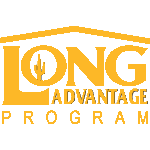With interest rates having dropped to record lows and having been on the decline for the last several years, many homeowners are inclined to refinance their mortgages to achieve a lower monthly payment. While in many cases this can be an effective strategy, there are many points to consider before diving into the refinance process. Below are some of the most relevant items to consider:
- Refinancing Means You’re Starting Over Again – With the way that loans are amortized over typically a 15 or 30 year period, the first several years of payments are mostly made towards interest and don’t make a big dent in the principal owed. Homeowners that refinance start this process all over again and while likely achieving lower monthly payments, they’ll not be making substantial strides towards paying the loan off.
- Compare Rates & Fees – Often times a low advertised rate may be accompanied by “points” which the buyer must pay up front to achieve the lower rate. Each point is equal to one percent of the loan amount. Other times an advertised no-cost refinance achieves reduced or eliminated out-of-pocket expense to the borrower by charging a slightly higher interest rate. The variables associated from loan to loan and lender to lender makes comparison shopping often difficult for the uninitiated.
- Low Appraisal – Of course a common hurdle today to overcome is the appraisal. With values of homes having fallen in most locations for the last few years there are many homeowners that can easily afford a new refinanced mortgage, but their home may not have enough equity for the new lender to approve the loan. There are now government sponsored programs like HARP 2.0 that can help “underwater” homeowners achieve refinancing, but certain values still must be met and who the original mortgage is held by may impact the scenario.
- Closing Costs – The amount of closing costs, unless rolled into the new mortgage itself, may not make a refinance beneficial if the borrower plans on moving in the near future. A very general rule of thumb is that a refinance makes sense if the closing cost amount is saved in the monthly mortgage payments during the first two years. Even so, unexpected life changes can cause a property to be sold unexpectedly, potentially making the refinance not cost effective.
- Time – Any mortgage sought today comes with some degree of time spent by the borrower collecting documents, etc. so factor in your time in the ultimate savings.
Hopefully these above points are well considered before taking on a refinance. One point that is notably missed most often is the first item about starting all over again with the mortgage. Essentially all the interest paid previously to date is wasted. However, refinancing can still be beneficial, particularly for those that need some relief from a higher monthly payment.








Connect With Us!